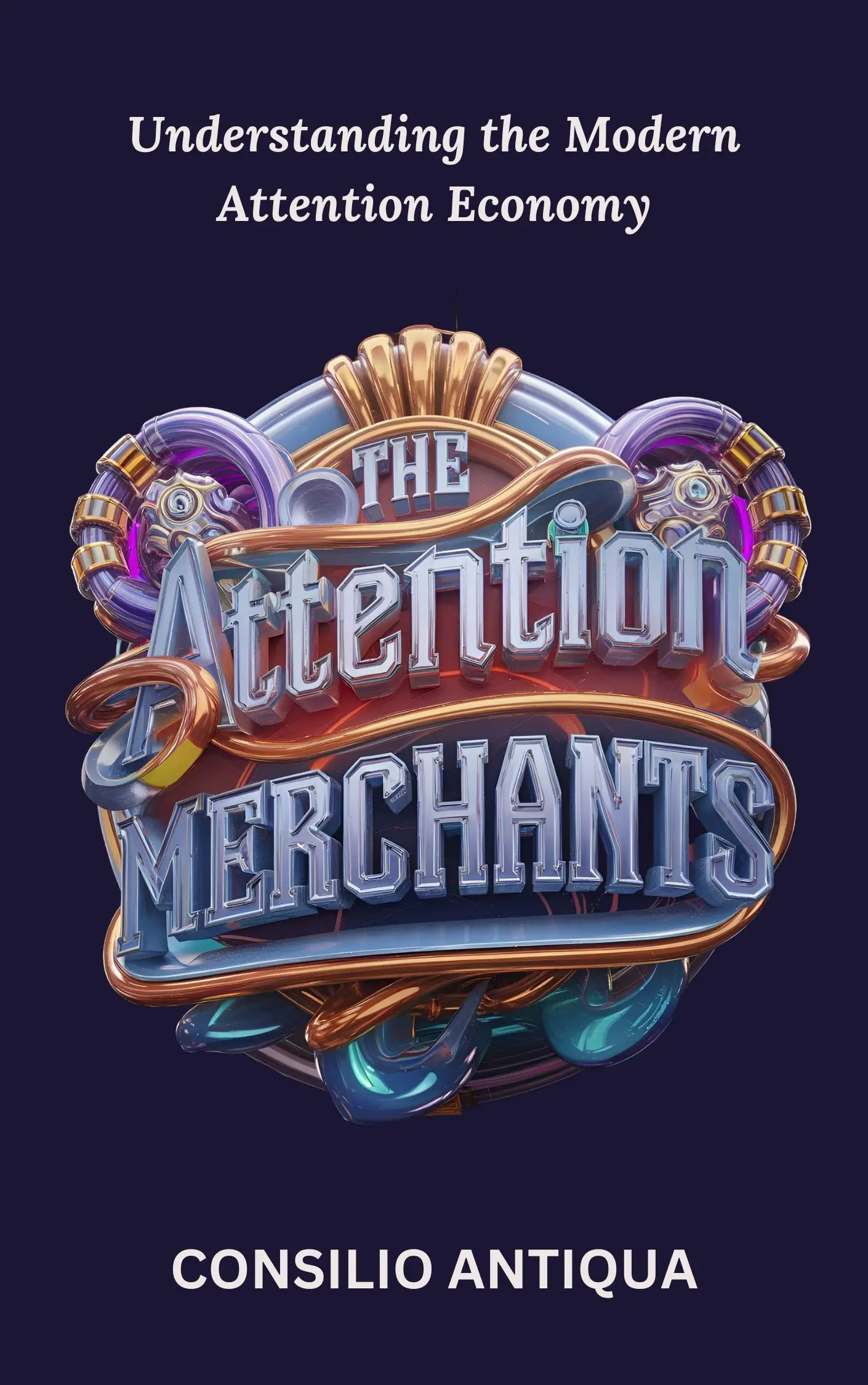
The Attention Merchants | Chapter 4. Psychology Behind Attention-Grabbing Techniques
Chapter 4. Psychology Behind Attention-Grabbing Techniques
Imagine David, a college student trying to finish a research paper. He opens his laptop with good intentions, but within minutes, his phone buzzes with a notification. It's a news alert about a celebrity scandal. He clicks, reads the article, then checks his social media feed. Before he knows it, an hour has vanished. David's experience is not unique. We live in a world where our attention is constantly bombarded by distractions, vying for a slice of our precious mental resources.
This constant tug-of-war for our focus is the essence of the attention economy. Companies, advertisers, and media outlets are locked in a fierce competition to capture and hold our attention, employing sophisticated psychological tactics to achieve their goals. One such tactic is the use of "nudges," a concept rooted in behavioral economics. Nudges are subtle cues designed to influence our choices without restricting our freedom. Think about the "recommended for you" section on YouTube or the "limited-time offer" banner on an e-commerce site. These are nudges, gently pushing us towards a specific action.
Our attention has become a valuable commodity, a form of currency in this digital age. Just like in a bustling marketplace, companies are constantly bidding for our attention, hoping to convert it into clicks, purchases, or engagement. The more time we spend on a platform, the more valuable our attention becomes to that platform. This is why social media feeds are designed to be endlessly scrollable, news websites auto-play videos, and apps send us notifications at all hours.
These digital distractions have a profound impact on our ability to focus. Notifications, pop-ups, and the fear of missing out (FOMO) fragment our attention, making it difficult to concentrate on complex tasks. Studies have shown that constant multitasking and digital distractions can lead to reduced cognitive function, decreased productivity, and even increased stress levels. Maria, a marketing professional, found herself constantly switching between emails, social media, and work projects. She felt overwhelmed and exhausted, her productivity plummeting as her attention became increasingly fragmented.
Artificial intelligence (AI) plays a significant role in shaping our attention online. Algorithms learn our preferences, our likes and dislikes, and use this information to personalize content, keeping us hooked. Think about how Netflix recommends shows based on your viewing history or how Amazon suggests products based on your past purchases. These AI-powered systems are designed to anticipate our desires and keep us engaged, often without us even realizing how our attention is being directed.
Social media platforms are particularly adept at capturing and holding our attention. Features like infinite scroll, likes, and comments trigger the release of dopamine, a neurotransmitter associated with pleasure and reward. This creates a feedback loop that keeps us coming back for more, even when we know we should be doing something else. Research has shown a strong correlation between excessive social media use and decreased attention spans, particularly among young people.
The design of apps and websites, a field known as human-computer interaction (HCI), also plays a crucial role in how our attention is captured. Auto-play videos, strategically placed buttons, and vibrant colors are all carefully crafted to grab our attention and guide our actions. Think about the bright red "subscribe" button on a YouTube channel or the flashing banner ads on a news website. These design elements are not accidental; they are the result of careful research and A/B testing aimed at maximizing engagement.
So, how can we regain control of our attention in this hyper-connected world? The first step is awareness. Recognize that your attention is a valuable resource and that companies are constantly vying for it. Once you understand the forces at play, you can start to implement strategies to manage your attention more effectively. Turn off non-essential notifications, set time limits for app usage, and create dedicated "focus zones" free from digital distractions. Consider using website blockers or productivity apps to help you stay on track.
Mindfulness practices, such as meditation, can also be helpful in training your attention. By learning to focus on the present moment, you can strengthen your ability to resist distractions and improve your overall concentration. Just like any skill, attention management takes practice and discipline. But the rewards are well worth the effort. By reclaiming control of your attention, you can improve your productivity, reduce stress, and enhance your overall well-being.
In conclusion, the attention economy is a complex and powerful force shaping our digital lives. By understanding the psychological tactics used to capture our attention, the role of technology in shaping our focus, and the strategies for managing our attention, we can navigate this digital landscape more effectively. Remember, your attention is your most valuable resource. Protect it, manage it wisely, and use it to achieve your goals, rather than letting it be controlled by the relentless demands of the attention economy.
